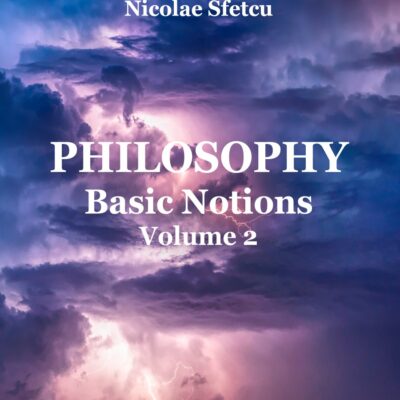The main systems
By introducing a distinction between the sensible and the intelligible, Plato founds, without naming it, what will later be called metaphysics, as the science of being insofar as it “is” and that it is what it is “is”, a science that will unfold throughout the history of Western thought in multiple forms and syntheses, the most important of which are attributed to Aristotle, Thomas Aquinas, Descartes, Kant, Hegel, Nietzsche. If history is punctuated with particular syntheses that end with the eras that bear them, metaphysical questioning remains a work of the mind in perpetual search for synthesis and universality that remains eternally.
With regard to Aristotle, the most famous of metaphysicians, Pierre Aubenque structures his large volume devoted to the problem of being in Aristotle around his failure to constitute a “One” science of being (that he names first philosophy), in other words, to establish a sure foundation for his Metaphysics. For the medievals: “Metaphysics must find its foundation outside of itself, in a theology that has become queen of the sciences”. They distinguish a general metaphysics which deals with the discourse on being and which will become ontology and a special metaphysics whose objects are the soul, God or the world. Metaphysics belongs to the speculative sciences (physics, mathematics and metaphysics) “it operates in the same genre as first philosophy and theology, first philosophy which deals with first causes, metaphysics studying that which has the highest degree of universality (the transcendentals), while theology that which is separate, God.
Rid of its theological dependence, Cartesian metaphysics will be based, in reason, on the certainty of the cogito; with it, the rise of science, and in particular Newtonian physics, was able to take place. Emmanuel Kant, in reaction, tries to establish a less ambitious metaphysics but which is more in conformity with human nature. With Kant, metaphysics no longer aspires to pass judgments on transcendental ideas, which are only illusions, although they are useful illusions in that they make it possible to unify the field of experience and to play a regulatory role for thought. After Kant, dogmatic metaphysics found itself for a time discredited, to the point that the builders of the most complex systems, such as those developed by the thinkers of German Idealism (Fichte, Schelling and Hegel), all avoided refer to the word metaphysics.
Contemporary metaphysics has seen different currents: while Kant tried to refound metaphysics, positivism (Auguste Comte, Vienna Circle) and ideologies denied it, while other paths were opened with phenomenology (Edmund Husserl and Heidegger), French spiritualism (with Louis Lavelle, Jacques Maritain) and analytical philosophy. It should be noted that in a temporary approach corresponding to the writing of Being and Time, Heidegger sought in the 1920s to ensure a surer foundation for metaphysics, this will be the metaphysics of Dasein. Finally, the philosophy of the process—or of becoming, of the event—seeks to be an alternative to the metaphysics of substance. Alfred North Whitehead is perhaps the most important author in this field.
A line and a destiny: the forgetting of being
Because of its “onto-theological” structure, metaphysics, long before the introduction of Christianity, has from the outset been obsessed with the question of the ground which aims at the supreme being, an aim which is accompanied, according to Heidegger, by the “forgetting” of what is neither a being nor beingness in itself, but being itself otherwise called “ontological difference”. In Being and Time, Heidegger deploys the question of being, beginning by stigmatizing the oblivion in which tradition has left this question since Plato and Aristotle. This oblivion would only have been accentuated, by successive stages, to culminate in the modern era in the undisputed reign of “Technics”.
Defined at its origin as a science that has to deal with being, metaphysics quickly became absorbed in the task of telling the “truth”. With Aristotle’s theory of predicates, metaphysics takes off as the “logic of beings” in its entirety while questioning the most fundamental of them, the most eminent, thus simultaneously giving birth to a theology.
(Includes texts from Wikipedia translated and adapted by Nicolae Sfetcu)






Unraveling the Mystery of the Vagus Nerve and Your Soul | Myrna Young Life Coach
[…] Well, I think it’s easier when we try to understand that we have three metaphysical systems that swirl around us at all times. And the first one is the sensory reality, where you and I are […]